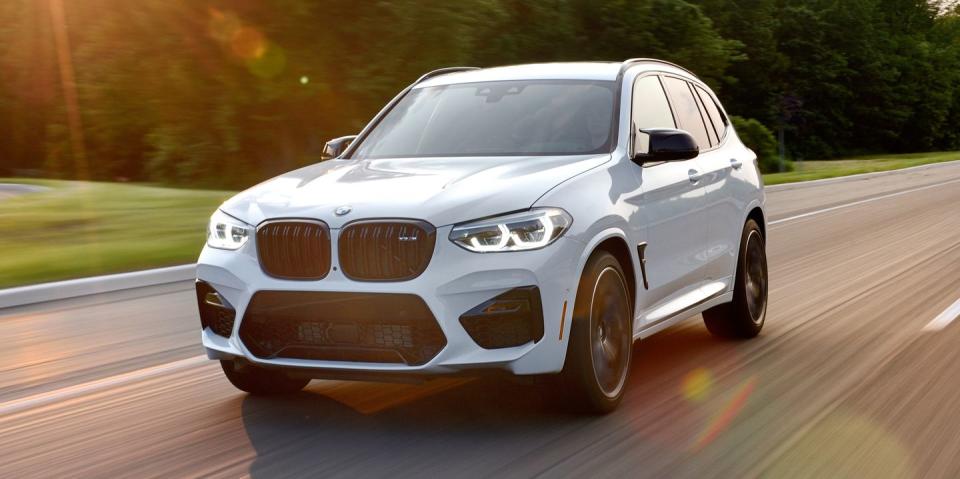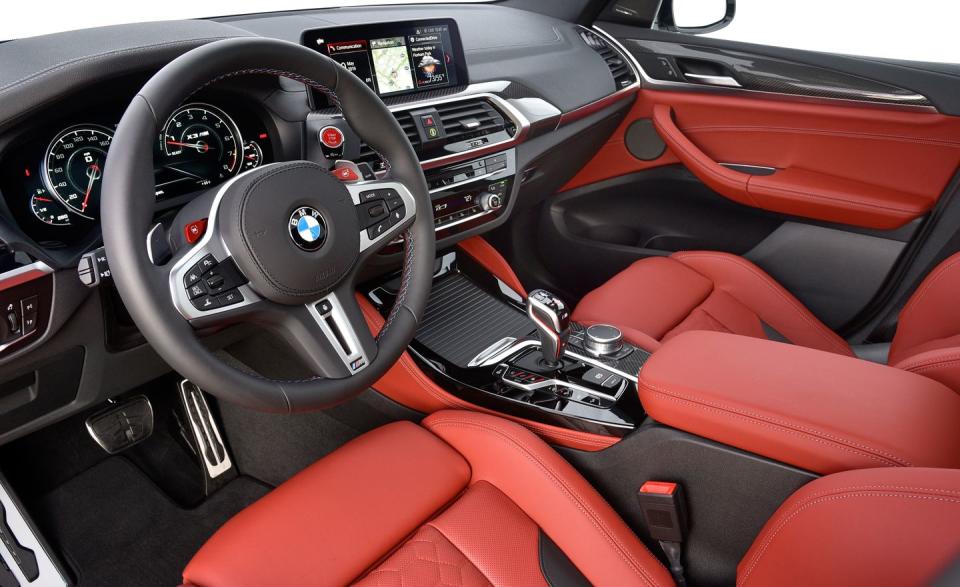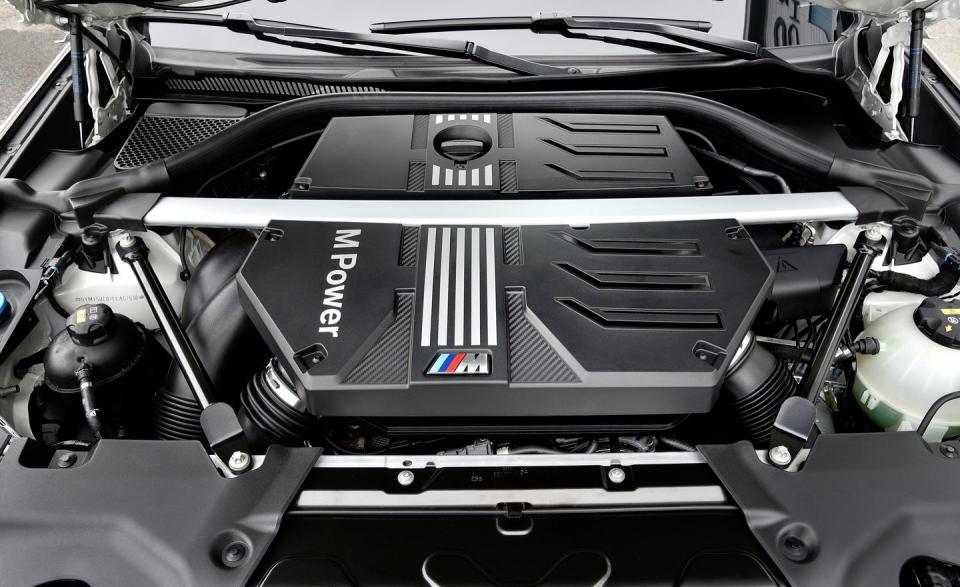The 2020 BMW X3 M Is Yet Another Physics-Defying Super SUV

11/15/19 UPDATE: This review has been updated with test results for the X3 M Competition model.
Though we may never fully understand the world's obsession with rapid SUVs, there's no denying that they're improving. Watching the 2020 BMW X3 M corner is a little like watching BMW's engineers impose their will on physics—it's not always elegant, but it'll get your attention. And from behind the wheel, despite its immodest height and upright driving position, this 473-hp utility vehicle (503 horsepower in Competition trim) is, well, undeniably capable.
Using the same eight-speed ZF automatic transmission and electronically controlled limited-slip rear differential as the M5 supersedan, the all-wheel-drive X3 M and its sloped-roof counterpart, the mechanically identical X4 M, are capable of shuttling torque fore and aft to assist the SUV in going where it's pointed. We initially drove them in rural New Jersey and New York, including laps at the 3.6-mile Monticello Motor Club track. It was there, in the circuit's off-camber corners, that BMW's heavily fortified compact SUV amazed. Even with a front tire occasionally dangling off the ground, torque continued to flow to the connected rubber, resulting in explosive corner exits and just plain silly speeds on the straights. Still, the idea that any BMW owner will ever do anything like this in a baby hauler that's all ate up with motor, brakes, and wildly adjustable suspension is absurd.

Tracking a Shopping Cart
Relative to the X3 M40i, BMW added multiple chassis braces, stiffer springs, retuned bushings, and more authority to the M's adaptive dampers. The result is stunning control accompanied by Rubik's Cube levels of adjustability. There are individual settings for the dampers, steering, exhaust, shift calibration and speed, torque split, stability control, and M modes. This is America; having choices is good. But having no presets makes us question the M division's self-confidence. Hey, BMW, there's nothing wrong with a preset Sport mode. Still, once set up, this X3 offers better response than many sports sedans did only a decade ago. Whether its owners will ever use that capability isn't clear. Yet the sales potential of an M-branded SUV is not lost on the heads of state in Munich.
What isn't lost on us is its new powerplant. Code-named the S58, the twin-turbocharged 3.0-liter inline-six is—in Competition trim—the most powerful production BMW six-cylinder ever made. It's also the strongest BMW inline-six, utilizing a forged crank, connecting rods, and pistons to push its specific output beyond that of any other BMW engine. Composed of 90 percent new parts, it uses a shorter stroke than the B58 engine found in the X3 M40i and M340i sedan to accommodate the slightly higher revs it's capable of (7300 versus 7000 rpm) and to improve durability during sustained high-rpm operation. A pair of turbochargers (the B58 uses a single twin-scroll turbo) are required to generate the air flow needed to achieve the S58's higher output. Air-to-liquid intercooling supports the 17.4 psi of peak boost in the standard models. Five nose-mounted heat exchangers—two engine-coolant radiators, two intercooler radiators, and an engine oil cooler—evacuate heat.

In addition to 30 extra horsepower (courtesy of 18.9 psi in boost and a more efficient exhaust), Competition models come with 21-inch wheels (over 20s on the standard model), a full leather interior, and minor aesthetic tweaks. Otherwise, this is largely a juiced-up X3, with an equally juiced-up price: $70,895 to start, or $3500 less than a comparable and less-practical X4 M. Add $7K for the Competition version of whichever model you choose.

Across all of our testing metrics, the X3 M Competition's results are near spitting images of its X4 M counterpart's. There's a girthy steering wheel in these Bimmers with which you can direct them to do wacky things around corners, or to orbit a 300-foot skidpad with a tacky 0.97 g of lateral grip. Shod with big Michelin Pilot Sport 4S summer tires—sized 255/40ZR-21 in front and 265/40ZR-21 in back—our 4549-pound X3 M Competition test car also stopped from 70 mph in a tidy 146 feet. Our captive example shot to 60 mph in just 3.3 seconds and vanquished the quarter-mile in 11.6 seconds at 119 mph—spot on with the X4 M Competition that we recently tested and fleet enough to make BMW's anabolic compact luxury utes among the quickest SUVs we've ever evaluated. If that's as surprising as it is perplexing, well, join the club.
You Might Also Like
